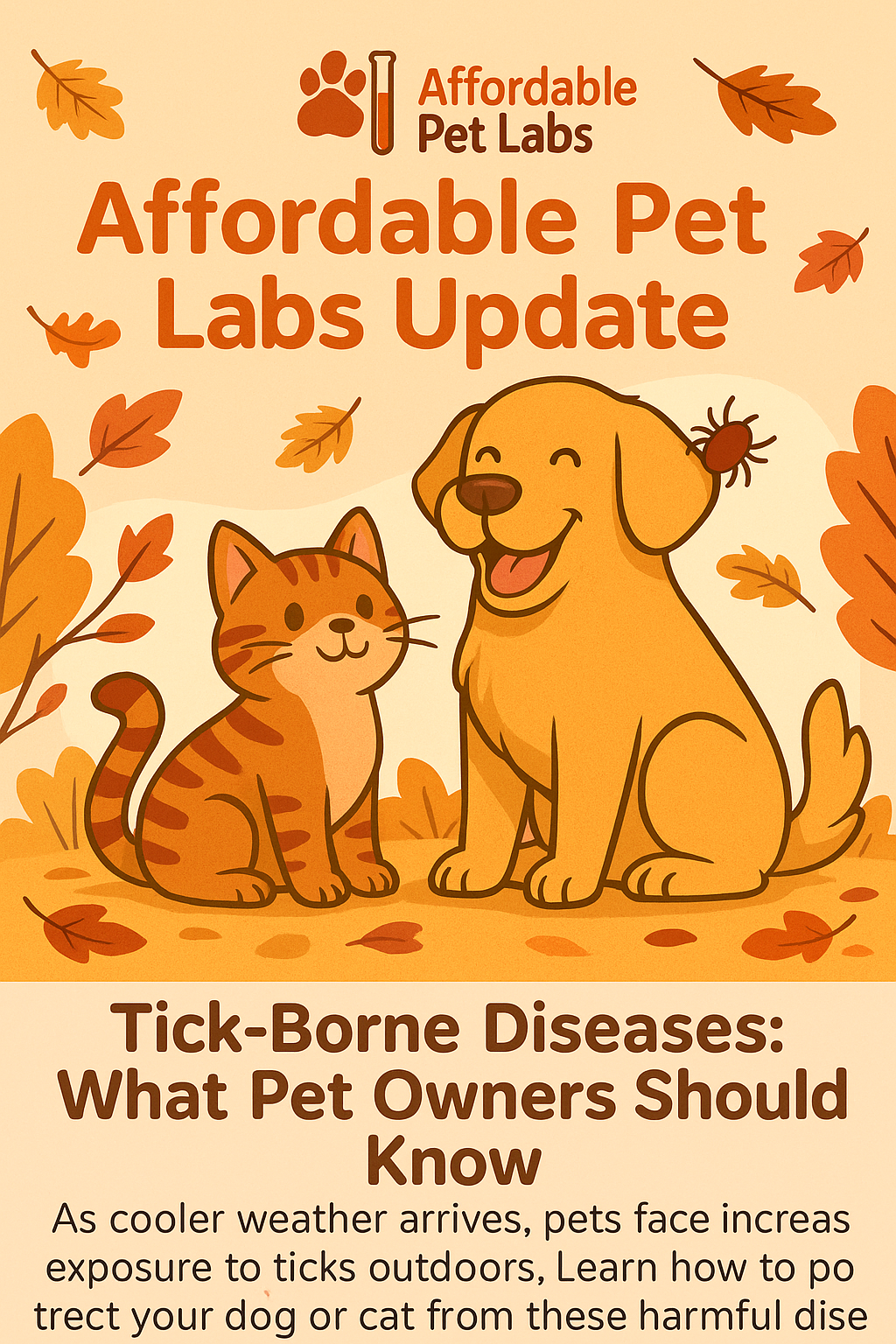Pet Allergies: How to Recognize and Manage Fall Allergies in Your Pets
Hello Pet Families,
As the crisp fall air settles in, it’s not just humans who feel the effects of seasonal changes—our pets can suffer from seasonal allergies too. In this blog, we’re focusing on how to recognize and manage pet allergies during the fall, ensuring they stay comfortable and happy throughout the season. Let’s dive into the causes, symptoms, and steps you can take to protect your furry friends during allergy season.
Common Fall Allergens for Pets
Just like people, pets can be allergic to various environmental allergens that become more prevalent in the fall. Some of the most common allergens include:
-
Pollen from Weeds: Ragweed, sagebrush, and other late-blooming plants can release pollen that triggers allergic reactions in pets.
-
Mold Spores: Fallen leaves and damp outdoor areas can harbor mold, a common pet allergen.
-
Dust Mites: As we prepare our homes for cooler months by turning on heaters, dust mites become more prevalent indoors.
-
Grasses: Even after summer, grasses can still produce pet allergens in the early part of fall.
Recognizing Allergy Symptoms in Pets
Pet allergy symptoms often differ from human reactions, so it’s important to know what to look for. Common signs of fall allergies in pets include:
-
Itching and Scratching: Constant scratching, especially around the ears, belly, and paws, is a strong indicator of allergies.
-
Red, Irritated Skin: Allergies can cause skin inflammation, leading to redness and irritation.
-
Excessive Licking: Pets may lick their paws or other areas obsessively to soothe itchy skin.
-
Runny Eyes or Nose: Just like humans, pets can have watery eyes and a runny nose due to allergies.
-
Ear Infections: Allergies can inflame the ears, leading to frequent ear infections.
-
Sneezing and Coughing: Respiratory symptoms may also occur if your pet is affected by airborne allergens.
Treatment and Prevention: Keeping Your Pet Comfortable
If you suspect your pet is suffering from seasonal allergies, there are several steps you can take to alleviate their symptoms:
1. Limit Exposure to Allergens
-
Keep Pets Indoors During High Pollen Periods: Limit outdoor activity during times when pollen levels are high, typically in the morning and late afternoon.
-
Wipe Down Your Pet: After outdoor time, wipe your pet’s paws and coat with a damp cloth to remove pollen and other allergens.
-
Create a Clean Indoor Environment: Regularly vacuum carpets, wash pet bedding, and use air purifiers to reduce indoor allergens like dust mites and mold spores.
2. Bathing and Grooming
-
Regular Baths: Use hypoallergenic shampoos designed to relieve itching and remove allergens from your pet’s skin and coat.
-
Keep Paws Clean: Clean your pet’s paws after walks to prevent irritation from allergens that collect on them.
3. Medications and Treatments
-
Antihistamines: Your veterinarian may recommend over-the-counter or prescription antihistamines to reduce itching and inflammation.
-
Topical Treatments: Medicated creams or sprays can help soothe your pet’s skin and reduce redness and itching.
-
Steroids or Immunotherapy: In more severe cases, your vet may prescribe steroids or recommend allergy testing and immunotherapy.
4. Supplements for Skin Health
-
Omega-3 Fatty Acids: Adding omega-3 supplements to your pet’s diet can improve skin health and reduce inflammation caused by allergies. Consult your vet about the best options for your pet.
Allergy Testing Options at Affordable Pet Labs
At Affordable Pet Labs, we offer allergy testing for pets to help pinpoint specific allergens causing discomfort. Our comprehensive tests can identify both environmental and dietary allergens, allowing you and your vet to create a targeted treatment plan.
-
Hair Testing: A non-invasive test that can be easily done at home by submitting a sample of your pet’s hair.
-
Blood Testing: A more detailed option that measures immune responses to specific allergens.
By identifying the exact pet allergens, you can make informed decisions about treatments and lifestyle changes to reduce their exposure and discomfort.







